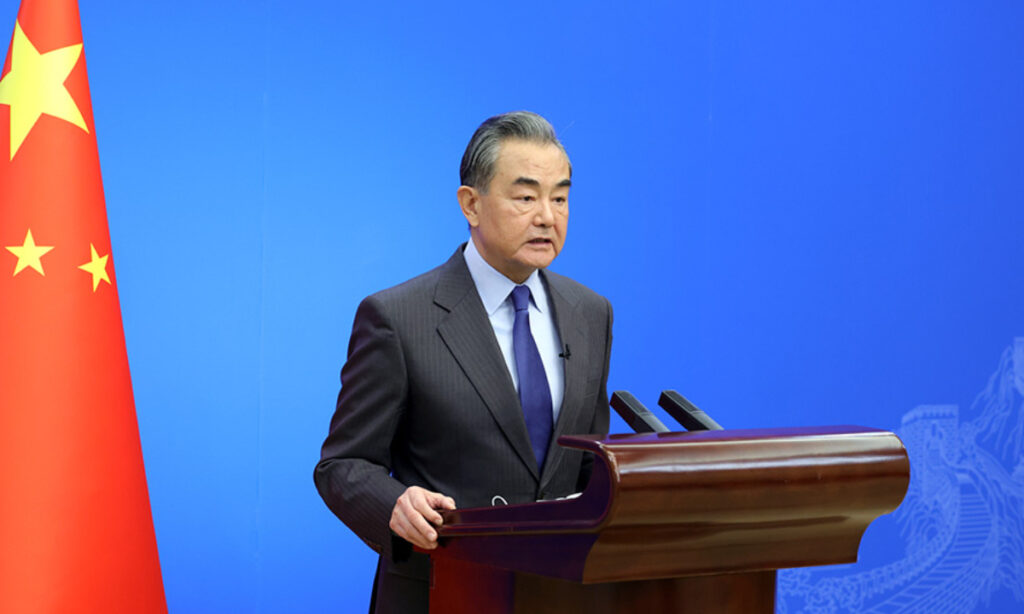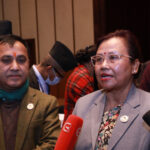As senior Chinese diplomat Wang Yi held phone talks with Emmanuel Bonne, diplomatic counselor to French President Emmanuel Macron, such high-level exchanges show both sides attach great importance to bilateral relations. Analysts called on China and the EU to keep the momentum of frequent high-level interactions to further boost mutual trust and seek ways to settle divergences.
Wang, who is now director of the Office of the Foreign Affairs Commission of the Communist Party of China (CPC) Central Committee and a member of the Political Bureau of the CPC Central Committee, said that in a world full of turbulence and changes, the healthy and stable development of China-France relations is of special significance, the Xinhua News Agency reported.
Wang noted that China is willing to maintain close high-level exchanges with France, deepen strategic mutual trust and open up new prospects for the China-France comprehensive strategic partnership.
Bonne said that France, which attaches great importance to its ties with China, is willing to work with China to strengthen high-level exchanges, deepen cooperation in innovation and technology and jointly draw a blueprint for future development.
Wang and Bonne’s conversations, which happened after Wang’s position changed from China’s foreign minister to his current role overseeing foreign affairs, highlights the consistency and predictability of China-France and China-EU relations, and the Monday phone talks covered issues and agendas that might affect bilateral ties, Cui Hongjian, director of the Department of European Studies at the China Institute of International Studies, told the Global Times.
Recently, several EU nations, including France, have reacted unscientifically and unfairly to China’s optimization of COVID-19 management. This calls for more discussion between the two sides as these unfair acts toward Chinese tourists might jeopardize future opportunities for collaboration, Cui said.
China has dropped the requirement for all international travelers to undergo quarantine and lowered the management of COVID-19 from Class A to Class B. A small number of nations, like France, have imposed restrictions on Chinese visitors, drawing criticism from public health professionals and the travel and tourism sectors for impeding intercultural interactions and the growth of the tourism industry.
Bonne said during the talk with Wang that France understands and supports China’s anti-COVID measures, and believes China will prevail over the latest round of the outbreak.
This year marks the 20th anniversary of the China-EU comprehensive strategic partnership. During the talk with Bonne, Wang said that China is willing to work with France and other EU member states to uphold mutual respect, dialogue and cooperation and mutual benefit to inject new impetus into the China-EU comprehensive strategic partnership.
Cui said that bilateral ties have been trending upward thanks to the frequent and fruitful high-level exchanges between China and the EU during the G20 summit and in the latter months of 2022, and the two sides are seeking to maintain the momentum.
German Chancellor Olaf Scholz and President of the European Council Charles Michel successively visited China in November and December 2022, which Chinese and European analysts see as positive signals to improve China-EU relations.
Cui noted that the EU and China both need each other and that more high-level exchanges are anticipated in 2023. The EU also expects to increase collaboration with China as it continues to confront numerous obstacles in the wake of the Russia-Ukraine issue, particularly in the economy. To China, the EU remains a focal point for its foreign policy.
However, analysts said that amid the US’ increased efforts to rally transatlantic allies against China, disputes on certain issues, such as ideology and US influence, may still pose difficulties for China-EU relations in 2023. Additionally, some anti-China politicians in the European Parliament might push for a tougher stance on China, which could erode mutual trust.
Cui said that the primary goal for China and the EU is to stabilize bilateral ties and jointly work to seek consensus on resolving issues that have harmed bilateral relations and on boosting political trust. Making fresh headway and reestablishing offline exchanges that have been hampered for almost three years by the COVID-19 epidemic may be the first step to take.
Moreover, analysts also called on EU leaders to maintain strategic independence and make diplomatic policies based on its own interests, instead of serving as proxies for the US’ strategic purposes.
(Global Times)




